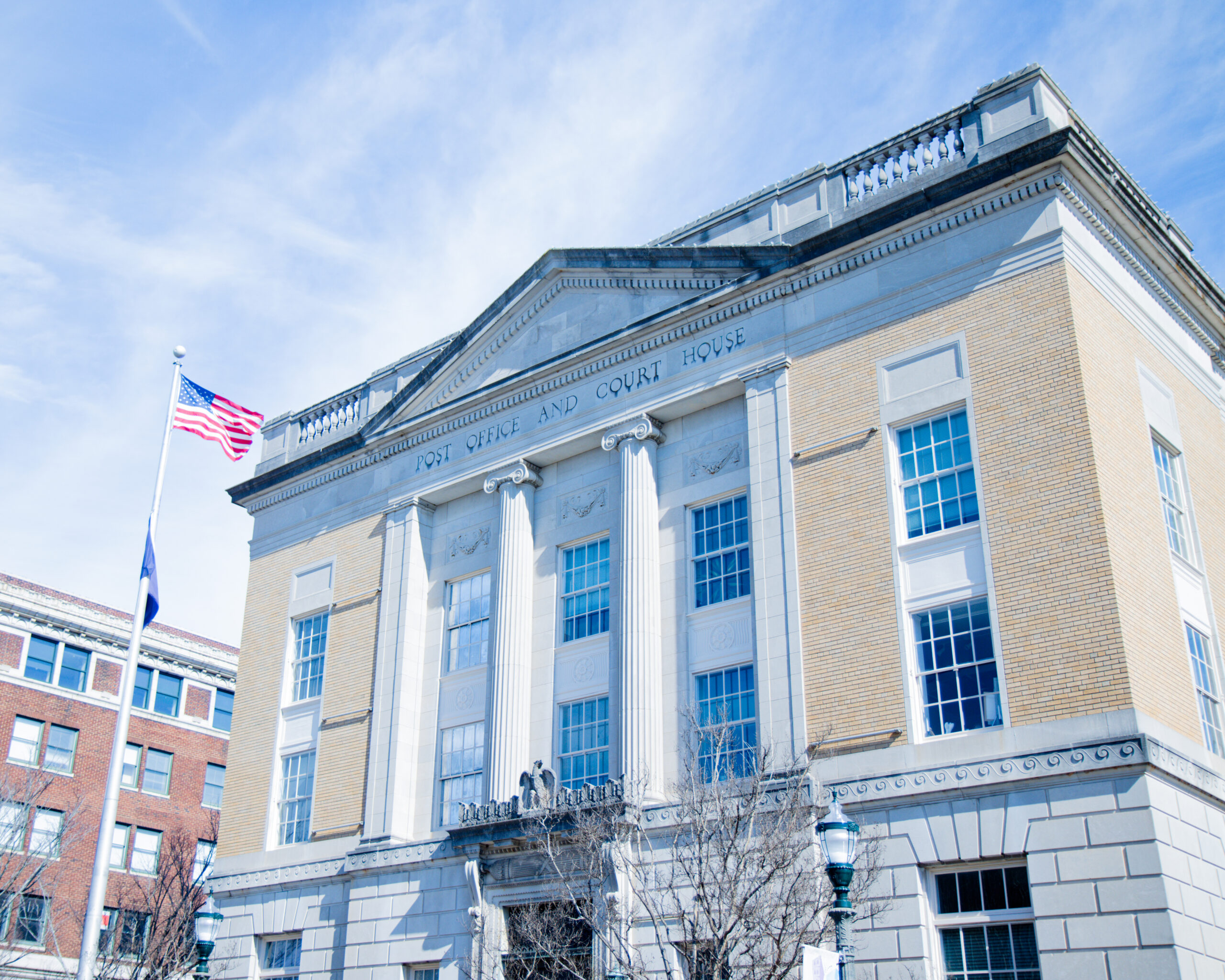Climate change is one of the most controversial and heavily-debated topics of our day. Scientists have presented data that proposes to show the effects of CO2 emissions, but there remains much division over climate change, with some high-level government officials saying that they do not believe there is a problem.
Winthrop University’s political science department hosted a panel last week in response to the efforts of teenage climate change activist Greta Thunberg. This discussion was led by Winthrop political science professors Christopher Van Aller and Michael Lipscomb, along with Kayla Newsome, a senior psychology and religious studies major at Winthrop.
The presentation featured a video that explained the meaning of what Thunberg aims to do with her movement: to get political leaders to think about climate change. For Thunberg, what started out as a small strike from school every Friday outside the Parliament House in Sweden expanded to something much larger.
Lipscomb read some excerpts from “The Uninhabitable Earth: Life after Warming” by David Wallace Wells.
“It is almost hard to believe just how much has happened and how quickly. In the late summer of 2017, three major hurricanes arose in the Atlantic at once preceding it. First of all, in the same group, as though they were battalions of an army on a large hurricane Harvey, when it struck Houston, delivered such epic rainfall it was described in some areas as a 500,000-year event, meaning that we should expect that amount of rain to hit that one that area once every five hundred million milenia. Part of the point that at Wallace Wells goes on today. We’re having these 500,000 events once a year or sometimes more than once a year,” Lipscomb said.
Newsome, who created Low Impact Carolinas — a Facebook group that aims to teach people how to live a more sustainable life — said that “there is a lot of information out there and I kind of wanted to put it in one place that was easy to access.”
Newsome explained how people can better manage their waste and be more conscious of what they are consuming and how it affects the planet. Her first point was the impact of voting.
Newsome talked about the importance of reduce, reuse, recycle and how it’s in this particular order for a reason because this is the proper way to dispose of waste after consumption.
“The first thing we can do is to reduce our consumption by not consuming things that we don’t need. For example, when you go into Sam’s [Club] or Costco and there are all these little samples in little plastic cups, it’s an unnecessary thing that you don’t need– saving novelty items and stuff that you’re going to use maybe once and thrown away. It’s unnecessary,” Newsome said.
“In addition, you can reduce your consumption of products packaged in plastic, as hard as it is to do. It’s definitely possible, particularly where we live. We’re right next to Charlotte, and in addition, we have a store right up the road that has zero- waste groceries,” Newsome said. “You can buy groceries at Earth Fare without plastic at all. Also, there’s a farmer’s market right up the road where can get groceries. We’re in a very opportune place to make real change in our consumer habits.”
Newsome proposed reducing meat consumption as a way to reduce one’s carbon footprint, though she said that the idea is not terribly popular. She said that animal agriculture is a leading cause of CO2 production.
“That doesn’t mean you have to go vegan. You can do meatless Mondays — reduce your consumption just a little bit. I eat meat probably twice a week, and it’s not that big of a deal,” Newsome said.
“Recycling should be your last resort. In America, most of our recycling is offshored, and most things don’t get recycled … glass can’t be in single-stream recycling. In Rock Hill, single stream recycling, you have to put glass somewhere else that you have to physically take it to the recycling facility because otherwise the glass is considered a safety hazard and the entire recycling batch goes to landfill, which is a waste of the effort,” Newsome said.
Newsome spoke about some of the claims made by the World Health Organization as well as claims that there is only a little more than a decade before the world begins to see catastrophic effects of climate change.
“The World Health Organization estimates that climate change is going to cost an additional 250,000 deaths related to things like malaria, malnutrition and heat exposure by 2030. And it’s important to make actual change because we have about 12 years before we start experiencing the worst effects. We can’t just sit by and act as if it’s this abstract thing that might happen in the future. It’s happening now. Venice is underwater right now for the first time in years,” Newsome said. “You don’t have to be perfect. Do what you can.”
Van Aller shared what other countries are doing internationally in an effort to stop climate change. In 2015, the Paris Climate Agreement took place. The PCA is an international agreement over 150 countries signed. The United States withdrew from the agreement in June 2017 with Nov. 2020 being the earliest date that goes into effect.
Van Aller stressed that America’s number one competitor China is capitalizing on the environmental industry.
“China is the number one investor in renewable energy industry, which has sort of interesting, because President Clinton used to talk about the fact that we can make money having a green climate economy without necessarily dismantling capitalism per se. It is, I think, a very exciting point. Now, why should China go along with this? Well, because the social compact in China basically means that they, the Chinese government, are going to take care of you even though you don’t get to, shall we say, have a lot of input,” Van Aller said.
“With that being the case, China has taken care of their citizens in terms of their health, and then just to repeat the last bullet point, China is going to make a ton of money on things like solar panels, and we are losing that market to them, which is kind of sad,” he said.
Another country that is making strides in the environmental world is right next to America’s southern border, Mexico. Currently, Mexico is one of the first countries to create climate laws for reducing greenhouse gasses and gas emissions by 22 percent by 2030.
In the European Union, this is a hot button issue with countries such as Germany and Norway leading the campaigns against climate change. Norway especially is making the transition, considering that they are one of the world’s major oil exporting countries.
“Norway is one of the biggest oil producing countries in the world, but interestingly enough, they are totally worried about climate change, and they also realize that they do not want their industry to continue,” Van Aller said.
“They’re planning to not have oil at a certain point, but until that point, they’re interested in sequestering CO2 in manufacturing, which is interesting because a lot of people know that climate change comes from a lot of other things other than vehicles. And so they’re interested in ways in which you can do what’s called ‘carbon capture’ in their various industries, and they’re pioneering that and they’re financing it with taxes on the oil industry, which I think is fascinating.”




